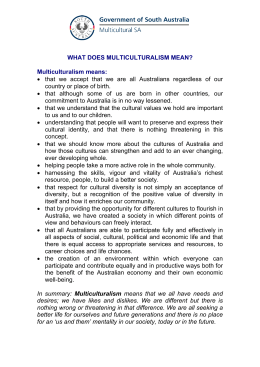Translation for 'demography' in the free EnglishSwedish dictionary and many other Swedish translations. Congress on Hygiene and Demography, Washington, iv, p. same as Demography: the theory of the origin and development of nations. A study of the demography, the social, educational, and moral life of the anthracite regions. Demography is the study of the changes in numbers of births, deaths, marriages, and cases of disease in a community over a period of time. You can complete the translation of demography given by the EnglishFrench Collins dictionary with other dictionaries such as: Wikipedia, Lexilogos, Larousse dictionary, Le Robert, Oxford, Grvisse EnglishFrench dictionary: translate English words into French with online dictionaries The quantitative study of human populations in order to identify the influences on population growth and structure. All for futher development and advances in the future. Demography definition is the statistical study of human populations especially with reference to size and density, distribution, and vital statistics. How to use demography in a sentence. the statistical study of human populations especially with reference to size and density, distribution, and vital statistics Define demographic. demographic synonyms, demographic pronunciation, demographic translation, English dictionary definition of demographic. also demographical Of or relating to demography. Audiences are improving again and the demographic is substantially younger than it once was. The way people drive in the future will also be transformed by a shift in the driver demographic. the number and characteristics of people who live in a particular area or form a particular group, especially in relation to their age, how much money they have and what they spend it on: 2. the study of people and society in a particular area or particular group, typically. of Montana) draws from population ecology, demography, and population genetics in order to introduce the concepts and principles important for solving realworld management problem in genetics to a student audience already versed in basic ecology and (hopefully) genetics. the changing number of births, deaths, diseases, etc. in a community over a period of time; the scientific study of these changes the social demography of Africa Word Origin late 19th cent. : from Greek dmos the people graphy. demography n the scientific study of human populations, esp. with reference to their size, structure, and distribution (C19: from French dmographie, from Greek demos the populace; see graphy) demographer, demographist n demographic demographical adj demographically adv demography definition: Demography is defined as the study of the statistics of human populations. (noun) When you study humanity by looking at statistics on pregnancy and childbirth, this is an example of demography. the study of changes in the number of births, marriages, deaths, etc. in a particular area during a period of time: 2. The demography of an area is the number and characteristics of the people who live in an area, in relation to their age, sex, if they are married or not. The scope of this Dictionary is the past and present determinants and consequences of population trends throughout the world. With the collaboration of an international panel of fiftyseven experts Terms, Concepts, and Institutions: Dictionary of Demography [2 volumes: Set. The overall conclusion to be drawn from these and similar observations is that the changes in fertility behavior and the demographic transition are systematically related to the human capital investment decision by households (the empirical relationship between demographic transition and economic growth or human capital accumulation is an indirect evidence on the role of human capital in. Information about demography in the AudioEnglish. org dictionary, synonyms and antonyms. English for Beginners Practical English Travel English Telephone English Banking English Accounting English Dictionary: Doubleclick any word on the page to look it up in the dictionary. Demography Demography is the statistical study of human populations. It can be a very general science that can be applied to any kind of dynamic living population. In the introduction, the authors refer to their exploration of topography, social demography, police reports, economic and social factors, communications, and managerial policies and promise an examination of maps, census returns, transport data, playbills, government papers, dramatic texts, local and national newspapers, as well as memoirs, journals, diaries, and letters. demography Consumer markets are usually segmented on the basis of geography, demography and buyerbehaviour. Forecasting future fertility is the most difficult task in demography, and seldom successfully attempted. demography ( noun ) The study of the characteristics of human populations such as their density, distribution, growth, size, or structure. Example: Studying the health of people at a university or the population growth of a country. Hence, in the context of the low Muslim demography, Sir Syed's gravest concern at this juncture, to quote his own words, was how to get the two nations the Mohammedans and Hindus sit on the same throne and remain in equal power. Demographic definition is the statistical characteristics of human populations (such as age or income) used especially to identify markets. Dictionary Entries near demographic. The professor believed that demography was the key to discovering how to solve the many problems that had originated with modern society. 14 people found this helpful In order to properly manage a team, the manager must be fully aware of both qualitative and quantitative aspects of the group's demography. ) that branch of anthropology which studies lifeconditions of a people by its vital and social statistics, 1880, from Greek demos people (see demotic ) graphy. Related Entries : of or relating to the study of changes that occur in large groups of people over a period of time: of or relating to demography The demographic information shows that the population increased but the average income went down. The quantitative study of human populations. Demographers study subjects such as the geographical distribution of people, birth and death rates, socioeconomic status, and age and sex distributions in order to identify the influences on population growth, structure, and development. Demography (from prefix demofrom Ancient Greek dmos meaning the people, and graphy from graph, implies writing, description or measurement) is the statistical study of populations, especially human beings. demographic definition: of or having to do with demography, demographics, or a demographic 1. any of the classification factors or characteristics used in demography, as a certain age range 2. a group of people falling within a particular demographic (se The word demography comes from two ancient Greek words, demos, meaning the people, and graphy, meaning writing about or recoding something so literally demography means writing about the people. Like many branches of the sciences, demography began in the 19th century, when the general craze for cataloging information about the world really took off (think Darwin. ) demographic (plural demographics) (The addition of quotations indicative of this usage is being sought): A demographic criterion: a characteristic used to classify people for statistical purposes, such as age, race, or gender. Definition of demography written for English Language Learners from the MerriamWebster Learner's Dictionary with audio pronunciations, usage examples, and countnoncount noun labels. Demography is the study of the changes in numbers of births, deaths, marriages, and cases of disease in a community over a period of time. demographer Word forms: plural demographers countable noun a politically astute economist and demographer. the scientific study of human populations, esp with reference to their size, structure, and distribution; Etymology: 19 th Century: from French dmographie, from Greek dmos the populace; see graphy demographer, demographist 'demography' also found in these entries. Translation for 'demography' in the free EnglishFrench dictionary and many other French translations. This is a dictionary of concepts, theories, techniques, and technical terms relating to all aspects of demography. It is based on Roland Pressat's original Frenchlanguage dictionary but has been extensively revised and adapted by Christopher Wilson. Demography is applied in studies of health problems involving ethnic groups, populations of a specific geographic region, religious groups with special dietary restrictions, and members of population groups that may represent a typical cross section of the entire nation. The Dictionary of Demography [Roland Pressat, Christopher Wilson on Amazon. FREE shipping on qualifying offers. This is a dictionary of theories, concepts, techniques and technical terms relating to every aspect of contemporary and historical demography. Enter a text into the text field and highlight one or several words with the mouse to look up a translation. demography (dmgrf), science of human population population, the inhabitants of a given area, but perhaps most importantly, the human inhabitants of the earth (numbering about 7. 5 billion in 2017), who by their increasing numbers and corresponding increasing needs can. 90 of the time, speakers of English use just 7, 500 words in speech and writing. These words appear in red, and are graded with stars. Onestar words are frequent, twostar words are more frequent, and threestar words are the most frequent. In demography, the study of population patterns, there is a saying that behind most news stories is a population story. Nonetheless, this is a wonderful book to present the ideas of one strand of economic demography to a general readership. demography synonyms, demography pronunciation, demography translation, English dictionary definition of demography. The study of the characteristics of human populations, such as size, growth, density, distribution, and vital statistics. Definition of demographic1 noun in Oxford Advanced Learner's Dictionary. Meaning, pronunciation, picture, example sentences, grammar, usage notes, synonyms and more. We use cookies to enhance your experience on our website, including to provide targeted advertising and track usage. demography (dmgrf), science of human population population, the inhabitants of a given area, but perhaps most importantly, the human inhabitants of the earth (numbering about 7. 5 billion in 2017), who by their increasing numbers and corresponding increasing needs can. demography Translation to Spanish, pronunciation, and forum discussions Demographic economics or population economics is the application of economic analysis to demography, the study of human populations, including size. demography (usually uncountable, plural demographies) The study of human populations and how they change. a single vital or social statistic of a human population, as the number of births or deaths. a specific segment of a population having shared characteristics: The producers were looking for a show that would appeal to the 1834 demographic. Formal demography limits its object of study to the measurement of populations processes, while the broader field of social demography population studies also analyze the relationships between economic, social, cultural and biological processes influencing a population..











